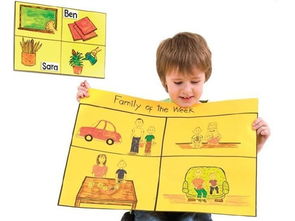早教英文儿歌
Title: Early Childhood Education: Understanding and Implementing Effective Strategies
Early Childhood Education: Understanding and Implementing Effective Strategies
Early childhood education, often abbreviated as ECE, refers to educational programs and strategies tailored to children from birth to around eight years old. In the field of education, this phase is widely recognized as crucial for laying the foundation of lifelong learning and development.
Early childhood education is vital as it significantly impacts a child's cognitive, social, emotional, and physical development. Research has consistently shown that quality early education experiences can lead to improved academic outcomes, enhanced social skills, and better overall wellbeing in later stages of life.

Effective early childhood education programs encompass various components:
- PlayBased Learning: Play is a fundamental aspect of early childhood education as it fosters creativity, problemsolving skills, and social interaction.
- Curriculum Development: Developmentally appropriate curriculum tailored to the needs and interests of young children is essential for effective learning outcomes.
- Early Literacy and Numeracy: Building a strong foundation in literacy and numeracy skills lays the groundwork for future academic success.
- SocialEmotional Development: Programs that focus on emotional intelligence, selfregulation, and social skills help children develop healthy relationships and navigate social situations.
- Parental Involvement: Engaging parents and caregivers in the learning process strengthens the homeschool connection and supports children's holistic development.
- Qualified Educators: Skilled and knowledgeable educators who understand child development theories and practices play a crucial role in delivering highquality early childhood education.
When implementing early childhood education strategies, it's essential to:
- Focus on Individual Needs: Recognize and accommodate the unique needs, interests, and abilities of each child.
- Promote Active Learning: Provide handson, experiential learning opportunities that encourage exploration and discovery.
- Provide a Safe and Nurturing Environment: Create an environment that is physically and emotionally safe, where children feel secure to explore and express themselves.
- Encourage Language Development: Foster language skills through conversations, storytelling, and exposure to rich vocabulary.
- Offer Opportunities for Social Interaction: Facilitate peer interactions and cooperative play to enhance social skills and collaboration.
- Monitor Progress and Adapt: Continuously assess children's progress and adjust teaching strategies to meet their evolving needs.
Early childhood education plays a crucial role in laying the foundation for children's lifelong learning and development. By understanding the key components and implementing effective strategies, educators and caregivers can create enriching experiences that support children's growth across all domains.
